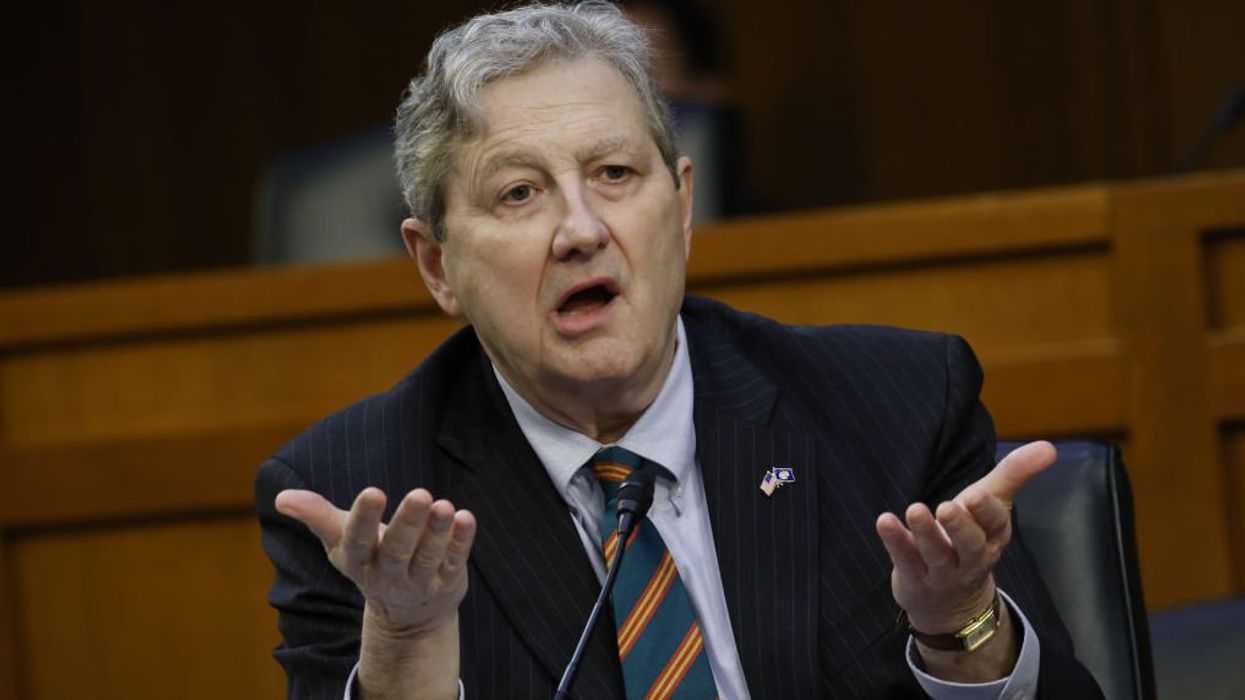
© 2024 Blaze Media LLC. All rights reserved.
Just 14 percent say the nation is heading in the right direction.
[Editor’s note: The following is a crosspost by John Harwoodthat originally appeared on CNBC.com]:
The ongoing stalemate over the federal government shutdown and the prospect of debt default has damaged public confidence in the country, its economy, and in the Republican Party specifically, according to a new NBC News/Wall Street Journal poll.
The survey, conducted as President Barack Obama and Republican congressional leaders grope for a way out of the crisis, shows the mood of Americans descending to depths comparable to those reached during the fall 2008 Wall Street crisis. Just 14 percent say the nation is heading in the right direction, around half the percentage who felt that way just a month ago. Fully 78 percent call the country on the wrong track, matching the result in October 2008.
Accompanying that shift is a sharp decline in economic confidence. By 42 percent to 17 percent, Americans now expect the economy to get worse rather than better in the next year. A plurality had been expressing optimism since the summer.
At the same time, the survey underscores the intense pressures on congressional Republican leaders to find a way out of the stalemate. For while the fallout has affected the entire country, it has inflicted particular harm on the GOP.
Most Americans—53 percent—blame Republicans in Congress for the shutdown, compared with 31 percent who blame Obama. In the shutdown fight that pitted President Bill Clinton against House Speaker Newt Gingrich in the winter of 1995-96, the proportion blaming Republicans never reached 50 percent in the NBC/WSJ poll.
Just 24 percent of Americans express a favorable view of the Republican Party. More than twice that many, 53 percent, express an unfavorable view. It is the worst showing for the GOP in the quarter-century history of the NBC/WSJ poll. Fully 70 percent disapprove of the job congressional Republicans are doing, compared with 59 percent who disapprove of congressional Democrats.
Seven in 10 Americans overall, and eight in 10 independents, say the Republicans are putting their political agenda before what's good for the country. Just 27 percent say Republicans are demonstrating strong leadership.
By comparison, some 48 percent disapprove of the job the president is doing, while 47 percent approve. Both numbers reflect a slight improvement for him since September, before the crisis began. Americans split nearly even on Obama's actions: 46 percent say he's being a strong leader, while 51 percent say he is putting his political agenda ahead of what's good for the country.
"The Republicans are not tone-deaf—they're stone-deaf," said Peter Hart, the Democratic pollster who conducts the NBC/WSJ survey with Republican counterpart Bill McInturff.
Even some core GOP groups, such as rural residents and older men, are more likely to blame Republicans for the standoff. White Americans, who held more favorable views of the GOP throughout the 2012 election year, now view Democrats more favorably.
Obama's base, meantime, has held firm. The Democratic incumbent has also seen slight improvements in his standing among white college graduates and college-educated women.
One finding likely to exacerbate internal differences within the Republican coalition is that the strategy of tea party hardliners appears to have undermined the very goals they cited in forcing party leaders to adopt it.
The proportion of Americans who oppose defunding the Obamacare has risen to 50 percent from 44 percent last month. The proportion calling the health law a good idea has risen to 38 percent from 31 percent.
More fundamentally, the government shutdown at least for the moment has heightened Americans' appreciation for the need for government in the first place. A 52 percent majority now say government should do more to meet the needs of Americans, outpacing the 44 percent saying that it already does too many things that are better left to businesses and individuals. In June, Americans split evenly on the question.
 President Barack Obama meets with small business owners about the government shutdown and debt ceiling, Friday, Oct. 11, 2013, in the Roosevelt Room of the White House in Washington (AP)
President Barack Obama meets with small business owners about the government shutdown and debt ceiling, Friday, Oct. 11, 2013, in the Roosevelt Room of the White House in Washington (AP)
McInturff, the Republican pollster, called that "an ideological boomerang from what Republicans want to see as an outcome."
One reason may be that the impact of this shutdown appears to be greater than in the 1995 episode, which was narrower in scope because it occurred after Congress and Clinton had reached agreement on funding significant parts of the government.
Some 73 percent of Americans called this shutdown "extremely" or "quite" serious, compared with 57 percent in 1995. Nearly one-third—31 percent—said their family had been personally affected, compared with 18 percent in 1995.
The damage Republicans have suffered remains unclear a year before the 2014 mid-term elections. Democrats have opened up an 8 percentage point lead over Republicans, 47 percent-39 percent, on the question of which party Americans want to control Congress after those elections.
But because most congressional districts have lopsided numbers of backers of one party or the other, national figures have limited significance.
The survey contains some danger signs for the GOP. Within districts held by Republicans, the GOP now has a more negative image than the Democratic Party does. But McInturff said such feelings stemming from this crisis are likely to ease when voters go the polls next year.
Republicans will "want to make sure we're not doing this again in November 2014," he said.
--
RELATED:
- GOP senators wantHouse deal to end shutdown, too
- The shutdown is not a real problem: Ron Paul
- Will shutdown impact my health insurance?
©2013 CNBC LLC. All Rights Reserved. John Harwood.
Want to leave a tip?
We answer to you. Help keep our content free of advertisers and big tech censorship by leaving a tip today.
Want to join the conversation?
Already a subscriber?
more stories
Sign up for the Blaze newsletter
By signing up, you agree to our Privacy Policy and Terms of Use, and agree to receive content that may sometimes include advertisements. You may opt out at any time.
© 2024 Blaze Media LLC. All rights reserved.
Get the stories that matter most delivered directly to your inbox.
By signing up, you agree to our Privacy Policy and Terms of Use, and agree to receive content that may sometimes include advertisements. You may opt out at any time.


